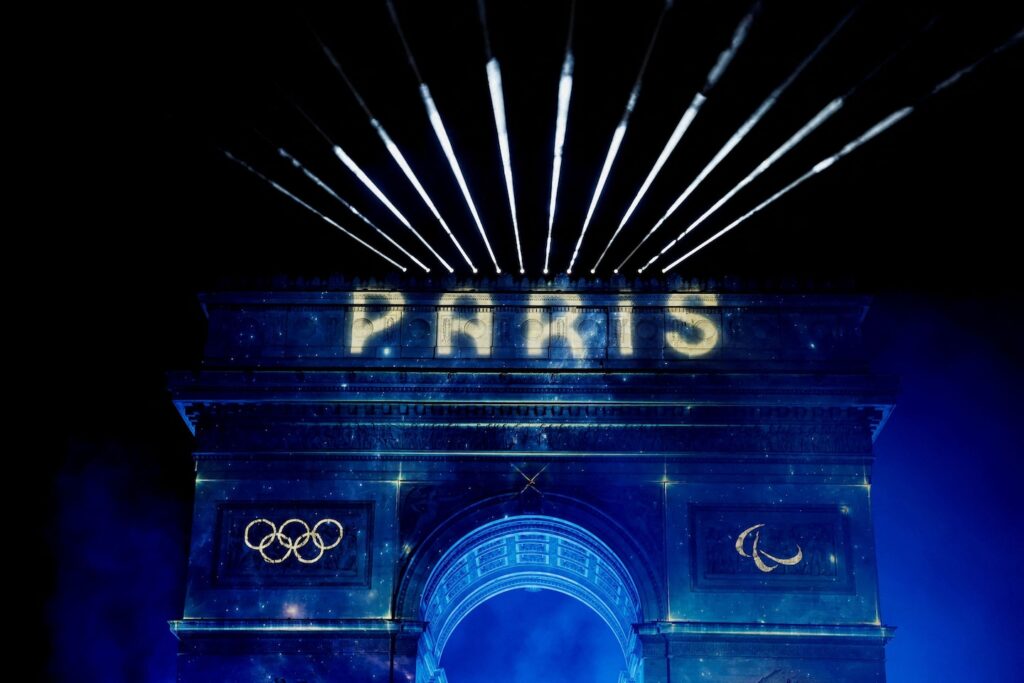Russia is “attempting to spread fear among its population in an attempt to discourage spectators from attending the Olympics,” Clint Watts, general manager of Microsoft's Threat Analysis Center, said in an accompanying blog post, and the company warned that disinformation could intensify in the run up to the opening ceremony.
The Russian Embassy in Washington did not immediately respond to an emailed request for comment.
The report appears to confirm claims by French President Emmanuel Macron, who said in April that Russia was targeting the Olympics by spreading claims that France was not ready to host. Kremlin spokesman Dmitry Peskov said at the time that the allegations were “completely baseless.”
Cyberattacks and information operations are the biggest threats facing the Paris Olympics, according to Dale Buckner, a former U.S. Army colonel and CEO of the private security firm Global Guardian. He said the attacks have probably already begun and will likely increase as the Olympics draw nearer and French authorities “go on the offensive” to crack down on groups plotting attacks.
In a report on the Paris Games published last month, the Global Guardian said that while some of the attacks on the Olympics had direct links to Russian intelligence, “most were perpetrated by private criminal organisations with ties to Russian intelligence but primarily driven by profit-driven motives”.
Russia “want to tarnish the Olympics, to tarnish the French institution, to tarnish the country and its politicians,” Buckner said. “It hardly matters what the tactics are.”
Among the disinformation campaigns documented by Microsoft is a film called “The Olympics Are Broken,” which features an AI-generated voice impersonating actor Tom Cruise and follows a “bizarre, disjointed script” that belittles the leadership of the Olympic Committee. Microsoft's report said the film began circulating on social media last summer and has recently been accompanied by other propaganda.
Russia also spread a fake news clip claiming that a quarter of Olympic ticket purchases were returned due to terrorism fears. Another clip contained a fake security warning from the CIA. Microsoft said the most worrisome vector of disinformation was social media accounts impersonating extremist groups and making up threats to the Olympics.
Microsoft said the propaganda campaign fits into a long-running pattern of trying to undermine the Olympics.
Russia was banned from the 2018 Winter Olympics following an extensive IOC investigation into state-sponsored doping activities. After Russia invaded Ukraine in February 2022, the IOC suspended the Russian Olympic Committee and banned Russian and Belarusian athletes from competing under their nations' flags. Last year, the IOC confirmed that Russian athletes would be allowed to compete in the Paris Olympics, but only in “individual neutral athlete” status and if they do not actively support war.
Microsoft wrote that the ban has added to Russian President Putin's “slow-growing” resentment towards the IOC.
“Failure to participate in or win the Olympic Games seeks to devalue, denigrate and degrade international competition in the minds of participants, spectators and people around the world,” Microsoft wrote in the report.
France has long grappled with Russia's influence in other areas too. It condemned Russian interference last year when a Star of David was painted on a building in northern Paris, spreading fear among France's Jewish community. More recently, a red hand was painted on a wall erected to honour those who helped rescue Jews during the Holocaust – a troubling symbol that recalls the 2000 killing of two Israeli soldiers by a mob in the West Bank, which Macron denounced as “abhorrent anti-Semitism”. But French media have reported that authorities now believe Russia may have been involved.
Buckner said Russia was poised to exploit tensions in French society, including the wars in Gaza and Ukraine, to stoke negative rhetoric ahead of the Olympics. The difference between the Paris Olympics and the previous Olympics in China in 2022, Japan in 2021 and South Korea in 2018 is that “there were not two hot wars then,” Buckner said. “Conflict of any kind is a big deal.” [Russia] They can stir things up… and they will.”
Greg reported from Washington.

